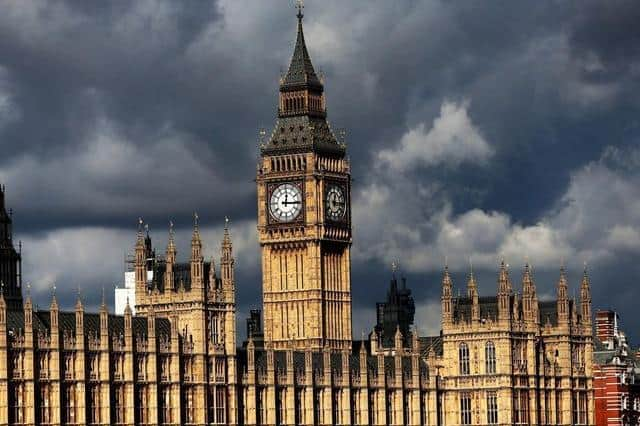'I go to bed and wish I didn’t wake up', says victim of loan charge - Greg Wright
In the days when words like “lockdown” and “pandemic” rarely found their way into my copy, I was scrolling through Twitter when I came across a Parliamentary group with fire in its belly.
The Loan Charge All Party Parliamentary Group (APPG)- as it was then called - had been infuriated by the plight of thousands of workers on modest incomes who had been plunged into despair after facing unexpected life-changing tax bills.
Advertisement
Hide AdAdvertisement
Hide AdThe loan charge, announced by the Government in 2016, was designed to tackle tax avoidance schemes where individuals receive income in the form of loans that are not repaid to avoid income tax.


A survey carried out by the APPG showed that many people facing the loan charge were not warned of the risks of being pursued by HMRC and had simply followed professional advice.
They had not been trying to avoid their responsibilities as tax payers. A high profile campaign was launched in support of an independent review into the policy.
In 2019, a review conducted by Sir Amyas Morse concluded that the design and delivery of the loan charge didn’t get the balance right between tackling tax avoidance and protecting the rights of taxpayers and, in some cases, had caused serious distress to the individuals affected. The review recommended the loan charge should not apply to loans entered into before 9th December 2010.
Advertisement
Hide AdAdvertisement
Hide AdBack in 2019, I believed the loan charge would probably occupy my thoughts and copy for a few months, before the tragic saga was brought to a close through compromise and mediation.
It saddens me to report, that more than two and a half years after the Government committed to act on the recommendations of the Morse review, MPs continue to uncover evidence of significant harm inflicted on law-abiding people due to this flawed policy.
Here, for example, is testimony collected from somebody facing the loan charge, which was submitted to the APPG as part of its latest call for evidence: “I am on medication for depression, I constantly worry about the loan charge.
“I go to bed and wish I didn’t wake up. I will end up bankrupt and selling my house.”
Advertisement
Hide AdAdvertisement
Hide AdAnother person affected by the loan charge said; “The personal impact continues to be immense, overshadowing everything else.
“I cannot sleep, wake up with sweats and am so much more tired than I would otherwise be. My general attitude to life has had a nosedive and yes I’ve on occasions contemplated suicide.”
The Loan Charge and Taxpayer Fairness APPG, as it is now known, was so worried about the issue that it sent an open letter to the Prime Minister and Chancellor in July last year, urging a “fair resolution” to “the Loan Charge debacle” because it is “abundantly clear that individuals were mis-sold these schemes”.
A spokesman for the APPG confirmed that Rishi Sunak has still not replied to this open letter, which has now been signed by more than 140 Parliamentarians.
Advertisement
Hide AdAdvertisement
Hide AdThe Government has said it is right that it continues to tackle these type of avoidance schemes as they deprive public services of vital funding.
HMRC has already published settlement terms for those who have used disguised remuneration schemes, according to the Government, which is encouraging anyone who is worried about paying the loan charge to contact HMRC so they can help.
HMRC is committed to working with taxpayers to enter manageable payment plans, the spokesman added.
There is no sign of any movement in the Government’s position, but I still feel duty bound to highlight the misery caused by this controversial policy and the Chancellor’s gross discourtesy in failing to reply to a letter signed by the members of a major cross party group.
Advertisement
Hide AdAdvertisement
Hide AdJust read this testimony, provided to the APPG: “I exist to pay off these debts .I cry daily and suffer panic attacks. My life and that of those dependent on me has changed forever. I will never get this time back with my son and he will never have the childhood he deserved.”
Something for Mr Sunak to ponder as he studies his in-tray.
Comment Guidelines
National World encourages reader discussion on our stories. User feedback, insights and back-and-forth exchanges add a rich layer of context to reporting. Please review our Community Guidelines before commenting.
